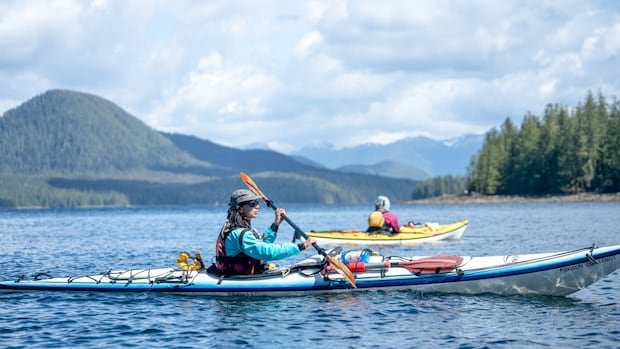National Outdoor Leadership School (NOLS), a U.S. non-profit organization operating in British Columbia, is considering modifications to its contentious request to utilize provincial Crown land following consultations with First Nations. The organization recently sought to renew and expand its permits to camp at various sites along the B.C. coast during a sea-kayaking expedition from Washington state to Alaska next summer.
The First Nations Leadership Council (FNLC) has raised concerns about the application, prompting NOLS to commit to further consultations. The FNLC emphasized the importance of obtaining free, prior, and informed consent from First Nations before granting any licenses. Hugh Braker, a member of the Tsheshaht First Nation and FNLC representative, stressed the necessity of First Nations’ approval for activities in these areas.
The potential camping sites are situated along the west and east coasts of Vancouver Island and up the central coast, as depicted by 77 red dots on a map provided by NOLS. Following an interview with Braker on CBC’s “On the Island,” Rich Majerus, NOLS’ VP of expeditions, expressed the organization’s willingness to reconsider its application in light of the feedback.
Majerus acknowledged the lack of prior consultation and expressed NOLS’ commitment to engaging in meaningful discussions with First Nations. He mentioned the possibility of excluding certain sites from the list after consultations, a move likely to appease many First Nations communities, according to Braker.
Despite the potential adjustments, NOLS has not withdrawn its application. Majerus emphasized the organization’s dedication to fostering collaboration, particularly during strained Canada-U.S. relations. NOLS aims to uphold principles of environmental stewardship by avoiding permanent structures, ensuring public access to the land, and adhering to “leave no trace” practices.

